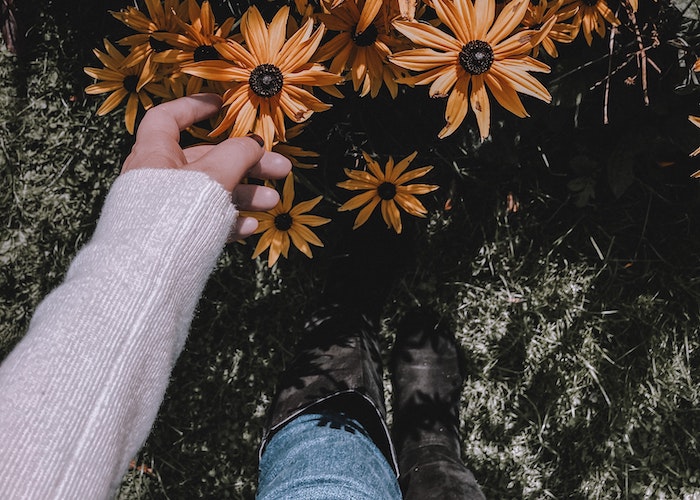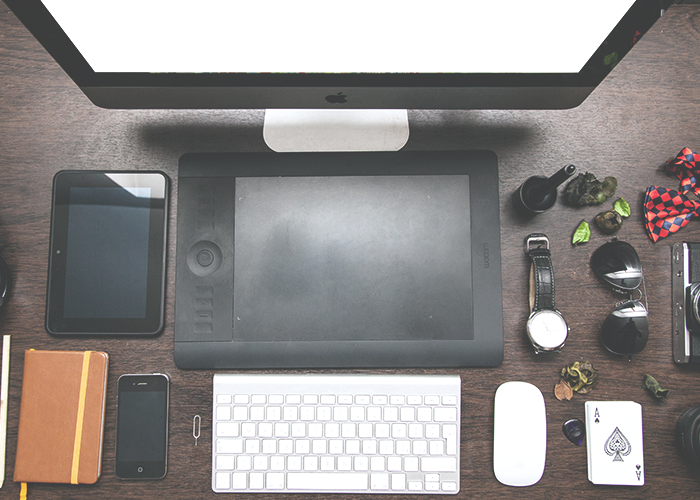FORO: What It Is, And How To Defeat It (Hint: You Probably Have It)
“My FORO manifests in simple, daily ways. It leaves me unnecessarily anxious, constantly wondering what would happen ‘if’…”
For my entire life I have operated with a scarcity mindset. My fear of running out (or FORO if you’re a hip millennial like me), leaves me unnecessarily anxious about running out of things I need. This can range from things like toilet paper, tampons, my favorite raspberry tea that I like to drink every evening (I keep three backup boxes in my pantry), to more essential resources like money and food.
It isn’t bordering on obsessive, but it is always present: the constant pull to buy a “backup” of something, even though the one I have still works. It is using a smaller measurement of an ingredient than the recipe calls for, because I feel weirdly uneasy at the prospect of running out of flour. It is always wondering before a gathering (I’m hosting), if there will be enough food to go around. It is sometimes bulk-buying, but never extreme bulk-buying, because I prefer a small stash rather than a hoard. I know what you’re thinking, and no — I did not bulk-buy 100 rolls of toilet paper at the beginning of the COVID-19 pandemic. Truth is, I didn’t need to; I had 20 rolls left from the trip to Costco I had taken a few months prior. And yes, I donated some to friends in need!
My FORO doesn’t overwhelm my life, or cause me to act greedily. I don’t usually act out of FORO at all, so much as I stew in its quiet panic, wondering what would happen if.
It manifests in simple, daily ways, a specific, uncomfortable, anxiety that bubbles beneath the surface. And since the beginning of the pandemic, it has exacerbated tenfold.
I could get really introspective and speculate why, when, and how this mentality became a part of me in the first place, but I will spare you (and me) the analysis and instead provide a list of everything I’ve found to help calm this fear and keep me in control, as I’ve settled neatly into adulthood.
1. Having systems in place (Hint: spreadsheets)
As all good anxiety-havers know, lists help. So do Excel spreadsheets, Post-it notes, to-do lists, calendars, and all other tangible forms of planning. For me, optimizing the flow of my life makes me far less anxious about worrying about what could happen if my resources were suddenly, drastically reduced. Having systems in place like a simple, effective budget, a good spreadsheet keeping track of household and personal care necessities, and a big magnetic calendar on the side of my fridge where I seamlessly track important dates, helps me feel like my life is set up in a way where nothing will slip through the cracks, even in the event of an emergency.
2. Keeping it simple and sustainable wherever I can.
Since FORO leaves me nervous about running out of the things I “need” (subjective, of course) and use every day, I find it helpful to keep things in my life on the simple side, and whenever I can, and I try to replace my daily necessities with reusable versions that I won’t have to worry about running out of. I’m not here to preach; my belief is that everyone should do exactly what works for them, and what they can comfortably afford, and I for sure don’t know you well enough to tell you what to do. However, I will name a few of my personal favorite swaps.
What worked best for me was adopting easy-to-use, reusable versions of a handful of everyday items I had to frequently replace, including:
- wool dryer balls instead of dryer sheets
- reusable cotton pads for removing makeup/applying skincare
- reusable notebooks instead of paper planners and notepads (I am a Rocketbook evangelist!)
- Swedish dishcloths and microfiber cloths instead of paper towels
- reusable period products like menstrual cups, period underwear or washable sanitary pads, etc.
Depending on your budget and lifestyle preferences, there are a ton of options out there for things you may want to replace with their reusable counterparts. Of course, these items all cost money upfront, and some cost money to properly maintain, so they may not be accessible to everyone, especially not all at once. This isn’t a “You need to do this stuff instead of being wasteful!” conversation, I promise. These are just suggestions that may quell your fear of running out of the things you need, if you happen to suffer from that particular anxiety. From my personal experience, it is always a relief when I remember, while standing in the paper goods aisle, that I have a stash of microfiber cloths at home I can wash and reuse.
3. Remembering you’re not alone (and reaching out when need be)
Reminding yourself that you do, in fact, have a support system around you is immensely helpful for combating a scarcity mindset. This isn’t to say that those in your circle should be expected to bail you out of crummy situations 24/7, no questions asked, but it is still nice to know that if any of your worst-case fears came true, you wouldn’t have to face them alone.
This is honestly just blanket “emotionally surviving a pandemic” advice. As someone who lives far from friends and family,I spend a good chunk of my time alone, and I love that and am very comfortable with my own company. But it brings me so much joy and energy to reach out to people I’m close with, from friends and colleagues to cousins and grandparents, during a time when things feel overwhelming and uncertain. I have phone calls with my best friend while sitting alone on my balcony at night sipping wine under my twinkle lights. I prop up my phone for a long, leisurely FaceTime session with my mom while we both cook dinner. I engage in epic, hand-cramp-inducing text message marathons in a group chat with my two closest friends back in my home state. Sometimes, reaching out to those you love and reminding yourself that there are people in your life — and on your team — is all you need to calm your deepest anxieties.
4. Feeling the fear
My reality at this point in my life is that I really don’t have to worry about actually running out of necessities. I am acutely aware that this is something I am privileged to experience, and I do not take that privilege lightly. But we can’t control our fears, and I happen to fear falling into a place where the things I need are inaccessible to me.
Interestingly, I take quite a bit of comfort in indulging my worst-case-scenario mindset, letting myself acknowledge the fear, and then later, reason with myself to come up with a plan for what I would do if I did find myself in that situation. Every so often, I allow my mind to go to ‘The Dark Place’ of scarcity, with the intention of setting up a plan for what I would do if ‘The Bad Thing’ of running out did happen. Allowing myself to think long and hard about what I would do if we did run out of toilet paper forever, or if I wasn’t able to access dog food for my pup, is helpful. Oddly, it comforts me to consider these options so I feel a little more prepared instead of uncertain. Plus, at the end of any said horrific hypothetical, is always a solution.
There is a lot of information out there (gestures broadly to the entire Internet) about living with a scarcity mindset versus an abundance mindset, but for now, I’m happy to find myself settled somewhere in the middle, acknowledging the place of immense privilege I am in, but also remembering at the end of the day that life changes rapidly and many of us are just one massive medical bill or a small financial emergency away from uncertainty. The place between scarcity and abundance, as it turns out, is acceptance — acceptance that no matter what happens, I will find a way to be okay.
As will you.
For the month of January, we’re exploring how to live with intention — how the small choices we make every day impact our lives and happiness in the long run. Click here to read more on this topic!
Mary enjoys conversations about money and life. She writes and tweets every day for her own personal fulfillment!
Image via Pexels



